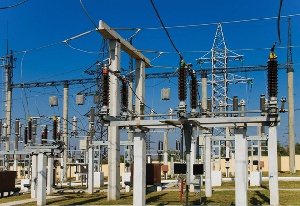The ability of the Volta River Authority (VRA) to continue to purchase fuel to fire thermal plants in the country to ensure sustainable generation of electricity is bleak as its financial obligations have jumped to $1.53 billion as of March 30, 2016.
VRA’s debt as of July 2015 was $1.3 billion.
The debt covers the cost of purchasing Light Crude Oil (LCO), lean gas, as well as long- and medium-term facilities and trade liabilities/overdrafts.
The breakdown of the amount are outstanding light crude oil - $896 million ($896,589,888.13); outstanding gas invoices - $530 million ($530, 998.937.66); short-term facilities - $33.68 million; medium term facilities - $120 million; and other trade liabilities/overdrafts - $78.531 million.
Documents sighted by The Finder reveal that the debt excludes current interest, roll-over fees and other charges.
The cut in crude oil production output from the Jubilee field by over 50% as a result of faulty turret bearing on the Floating Storage and Offloading vessel (FPSO) Kwame Nkrumah has fuelled a rise in LCO import to fire thermal plants. Consequently, experts believe that VRA’s debt would hit $2 billion by the end of this year even though VRA’s assets are not worth $2 billion.
This threatens the very existence of VRA.
$166.3m N-Gas debt
As of January 30, 2016, outstanding debts VRA owed N-Gas totalled $166.3 million ($166,374,079.73).
$246.3m Ghana Gas debt
Also, as of December 2015, VRA owed the Ghana National Gas Company (GNGC) $246.3 million ($246,342,879.15).
Causes of VRA’s debts
VRA’s power generation problems are a sign of the budgetary stress facing the country.
A fall in supply from hydro sources, government underpayment to the Electricity Company of Ghana, residents’ illegal consumption and tariffs too low for VRA to recoup its costs are the factors that have plunged the country into darkness.
The indebtedness is the result of the failure of the Electricity Company of Ghana (ECG), Independent Power Producers (IPPs) and the Volta Aluminum Company (VALCO) to pay VRA for services rendered, as well as the unrealistically low tariffs sanctioned by the Public Utilities Regulatory Commission.
Power Purchase Agreement
Even though ECG has signed power purchase agreement with IPPs, it has failed to do same with VRA despite persistent pressure from VRA in the last five years. One of the reasons ECG has persistently failed to sign the power purchase agreement is a clause in the agreement which demands that ECG pays outstanding debts with interest.
ECG argues that consumers of electricity do not pay outstanding debts with interest; therefore, it cannot do so to VRA.
For this reason, ECG usually pays IPPs first before considering paying VRA and Ghana Grid Company (GRIDCo).
Also, consumers pay ECG in cedis but ECG has to pay IPPs the dollar equivalent of power purchased using prevailing exchange rate as stated in the power purchase agreement.
This, the sources said, takes a large chunk of ECG’s money, for which reason ECG is unable to settle its debt to VRA since about 40% of power ECG purchases goes to government institutions, which do not pay bills.
Audited accounts of ECG indicate that as of the end of 2014, government owed ECG GH¢1 billion out of the GH¢1.6 billion debt on the company’s books.
Despite the huge indebtedness, VRA cannot cut supply to ECG because of its strategic nature.
Fuel for IPPs
In addition, VRA supplies fuel to all IPPs in the country.
However, the IPPs have failed to pay for the fuel with the explanation that ECG has not paid them in full and since ECG and VRA are state institutions, VRA should collect the fuel money from the money ECG owes them.
Despite this challenge, VRA continues to supply the IPPs fuel because failure to do so would result in huge deficits in power supply.
Consequently, VRA has borrowed money from numerous banks just to keep generating power for the nation.
Now, most of the banks are reluctant to lend to VRA because of the huge indebtedness.
Business News of Tuesday, 31 May 2016
Source: thefinderonline.com













